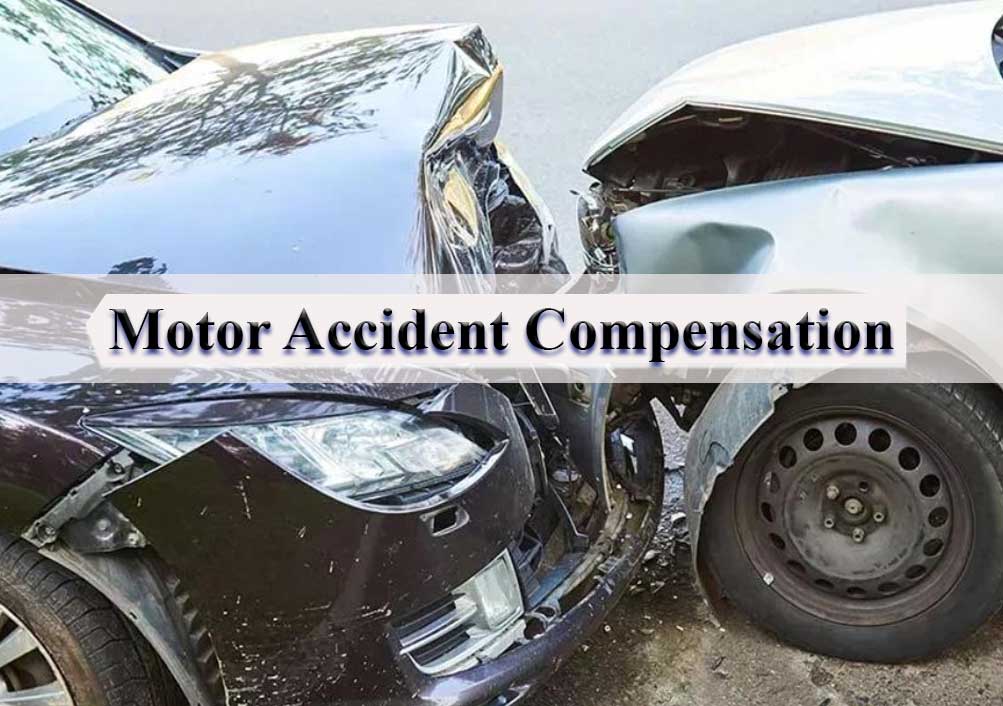In FAO 6758/2018(&M)-PUNJ HC- Chapter-12 of Motor Vehicles Act is beneficial legislation yet, as cautioned by Top Court, same cannot be allowed to be treated as windfall or source of profit: P&H HC
Justice Nidhi Gupta [16-03-2023]

Read Order: THE NEW INDIA ASSURANCE COMPANY LIMITED VS. SMT.SOMTI DEVI AND OTHERS
Mansimran Kaur
Chandigarh, March 18, 2023: While considering Cross Objections against the Award passed by the Motor Accident Claims Tribunal, in a claim petition filed u/s 166 of the Motor Vehicles Act., the Punjab & Haryana High Court has opined that it found no error in the reasoning of the Tribunal that the first claimant being widow of the deceased was the sole claimant dependent on the deceased and was therefore, the sole claimant entitled to compensation.
Justice Nidhi Gupta partly allowed the appeal preferred by the Insurance Company in the instant case by observing that the it did not appeal to the judicial conscience of this Court that grown men who are sustaining their own families, claim to be entirely dependent on the earnings of their aged deceased father, just to get the compensation.
The Tribunal on appraisal of the facts, pleadings and evidence adduced before it concluded that the deceased Megh Nath aged 78 years, had died due to the injuries suffered by him in a motor vehicular accident that took place on September 22, 2017 due to the rash and negligent driving of the Truck being driven by the seventh respondent and owned by the eighth respondent and insured by the appellant Insurance Company. Claimants were the widow, three major sons and two major married daughters of the deceased Megh Nath.
The award was assailed by the counsel for the appellant- Insurance Company primarily on the ground that all the claimants were major i.e. widow of the deceased being 74 years old, and the other claimants being 44, 43, 38, 47 and 41 years of age, respectively. It was further submitted that in actual fact, it was only the first claimant of the deceased who was entitled to compensation .
On the other hand, the Counsel for the claimants contended that under Section 166 of the Act an application for compensation may be made by any or all of the ‘Legal Representatives’ of the deceased and therefore, the Legal Representatives have to be seen and not ‘dependents’.
After considering the rival contentions of the parties, the Court noted that it is established position in law that income from agriculture is not taken into consideration while assessing income for purposes of computing compensation payable to claimants as, upon death of the deceased claimants are not deprived of the agricultural land and therefore, income from said land continues even after death of the deceased. In other words, there is no loss of income from agriculture, or even dairy farming.
In furtherance of the same, the Court noted that also in absence of cogent evidence with regard to income of the deceased, the same ought to have been taken as per the relevant Minimum Wage Notification.
Counsel for the claimants produced Minimum Wage Notification dated October 11, 2017 issued by Punjab Govt. as per which minimum wage admissible to skilled labourers w.e.f. September 1, 2017 was Rs. 9300/-. Accordingly, notional income of the deceased was taken as Rs. 9300/- per month, the Court noted.
As regards the argument of the Counsel for the claimants to the effect that claimants, second to sixth despite being major, married, settled sons and daughters of the deceased were entitled to compensation, the same was not tenable in view of judgment of the Supreme Court in New India Assurance Co. Ltd. Versus Vinish Jain and Ors., the Court stated.
Hence, the Bench found no error in the reasoning of the Tribunal that the first claimant being widow of the deceased was the sole claimant dependent on the deceased and was therefore, the sole claimant entitled to compensation.
It is the considered view of this Court that compensation has to be awarded keeping in view the facts and circumstances of each case, the Court further remarked.
Further with respect to the contention of the Counsel for the claimants that u/s 166 of the Act, claimants were entitled to compensation, the Court opined that no doubt as per S. 166 of the Act an application for compensation may be made by all or any of the ‘legal representatives’ of the deceased. However, it further placed reliance on the case of Manjuri Bera, wherein a clear distinction was drawn between “right to apply for compensation” and “entitlement to compensation”.
In view of the above, the Court reiterated ‘Entitlement to compensation’ has been held to be of one who is ‘dependent’ on the earnings of the deceased.
“This Court considers it imperative that it need be said that compensation upon the death of a near and dear one has been reduced to a market negotiation, where every penny is sought to be drawn. It does not appeal to the judicial conscience of this Court that grown men who are sustaining their own families, claim to be entirely dependent on the earnings of their aged deceased father, just to get the compensation” the Court further stated.
“It is reiterated that no doubt Chapter-12 of the Motor Vehicles Act, 1988 is a beneficial legislation yet, as cautioned by the Hon’ble Supreme Court, the same cannot be allowed to be treated as a windfall or a source of profit.”, the Court remarked.
Thus, in view of the observations made above, the Bench observed that the first claimant shall be entitled to interest at the rate of 6% on enhanced compensation. Consequently, the appeal instituted by the Insurance Company was partly allowed and the Cross Objections filed by the claimants was also partly allowed.
Sign up for our weekly newsletter to stay up to date on our product, events featured blog, special offer and all of the exciting things that take place here at Legitquest.




Add a Comment